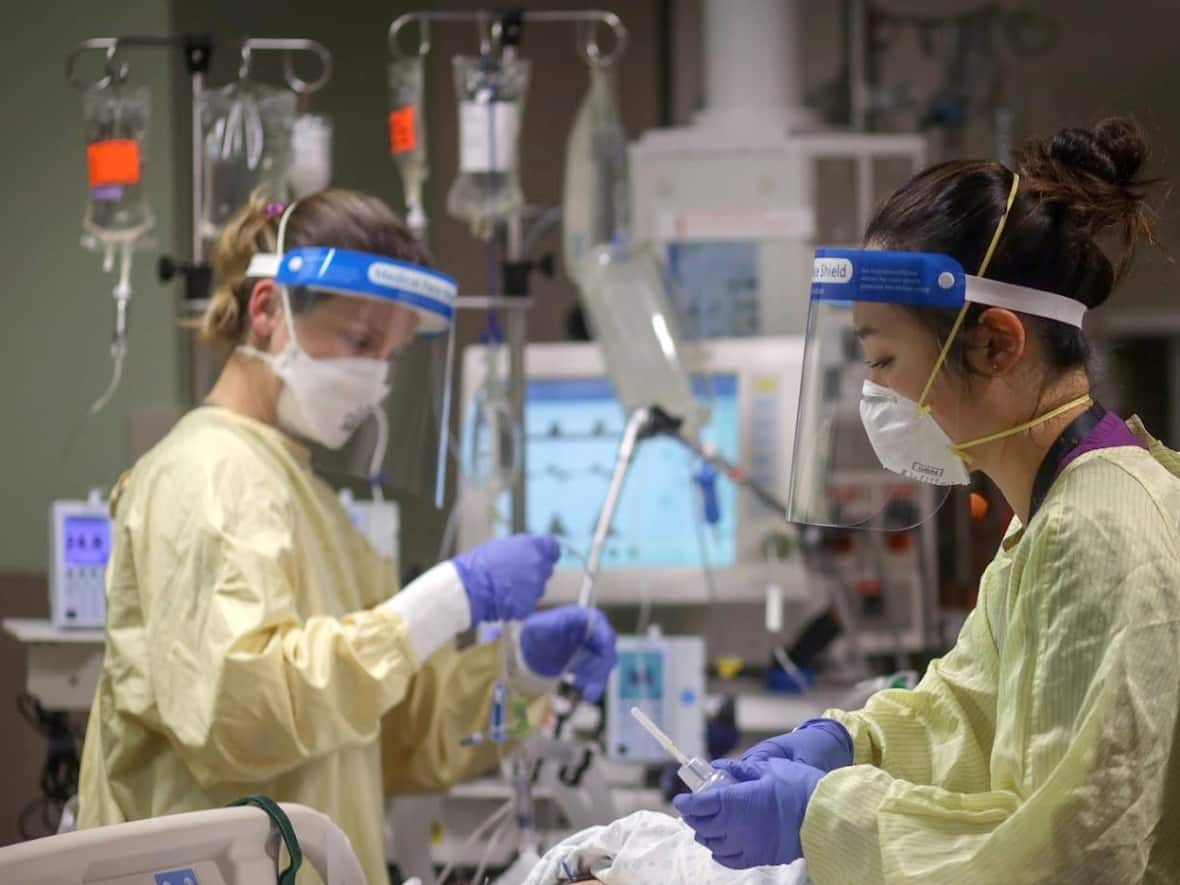New COVID-19 modelling projects continued downward trend for Alberta

New modelling projects daily COVID-19 cases and hospital admissions in Alberta will continue to decline if the province stays the course.
University of Victoria physics professor and member of British Columbia's independent COVID-19 modelling group Dean Karlen says it's been a rapid drop — around three or four per cent per day, faster than in B.C.
"Frankly, [I'm] really surprised how fast that turned around," he said. "That's remarkable."
The analysis — the 11th such release from the group — shows infections were likely at their worst through the peak of the fourth wave based on hospitalization numbers that nearly collapsed Alberta's health-care system.
The turnaround date came in mid-September when the province implemented sweeping new public health measures, including a proof-of-vaccination program.
"In our previous report three weeks ago, we just saw that turnaround and now it's absolutely clear," Karlen said.
"Provided that these measures remain in force and that people remain vigilant, then we would expect that decline to continue so that hospital systems can recover from that surge."

The methodology to track infection rates also changed in that last release. Karlen said case counts in Alberta were no longer a reliable indicator as there was less testing and contact tracing than in previous waves.
The modelling is now based on hospitalizations, although Karlen said that could make it more difficult to monitor what is happening in the weeks to come.
"We may be in a difficult time to understand the data from Alberta in three or four weeks from now when hospital admissions, hopefully, are much lower even than they are today."
A spokesperson for Alberta Health said testing has always only identified a small proportion of all cases throughout the pandemic.
Lisa Glover said in an email that Alberta Health Services is working to increase contract tracing capacity in schools. Otherwise, it will notify positive cases and focus contact-tracing in high-risk settings like long-term care.
"We will continue to monitor and adapt our approach as needed to protect the health system and reduce transmission," she said.
5th wave variables
Craig Jenne, an infectious diseases expert at the University of Calgary and member of the Snyder Institute for Chronic Diseases, said it's difficult to predict if Alberta will see another COVID-19 spike.
He said the B.C. modelling group has been accurate in the past but it is still based on a snapshot in time.
"The representing trends are based on rates and numbers we see today but with any infectious disease that can change and it can change in a number of ways," Jenne said.
Viral spread could increase when Albertans head indoors during the cold winter months, he said. A new variant could also change the trajectory of the pandemic.
Public health measures also play a part — Alberta Health says the restriction exemption program will remain in place through at least the first quarter of 2022.
"We are definitely headed in the right direction," Jenne said.
"The key right now is to keep going in that direction, not to get too excited and open things up too early."
Vaccination coverage is also continuing to climb across the province. Jenne said if vaccines were approved for use in people under 12 — a substantial portion of the unvaccinated population in Alberta — it would be a game-changer.
"There are lots of pieces still in play — lots of variables that are still changing that can dramatically influence whether we see a fifth wave or not in Alberta."


